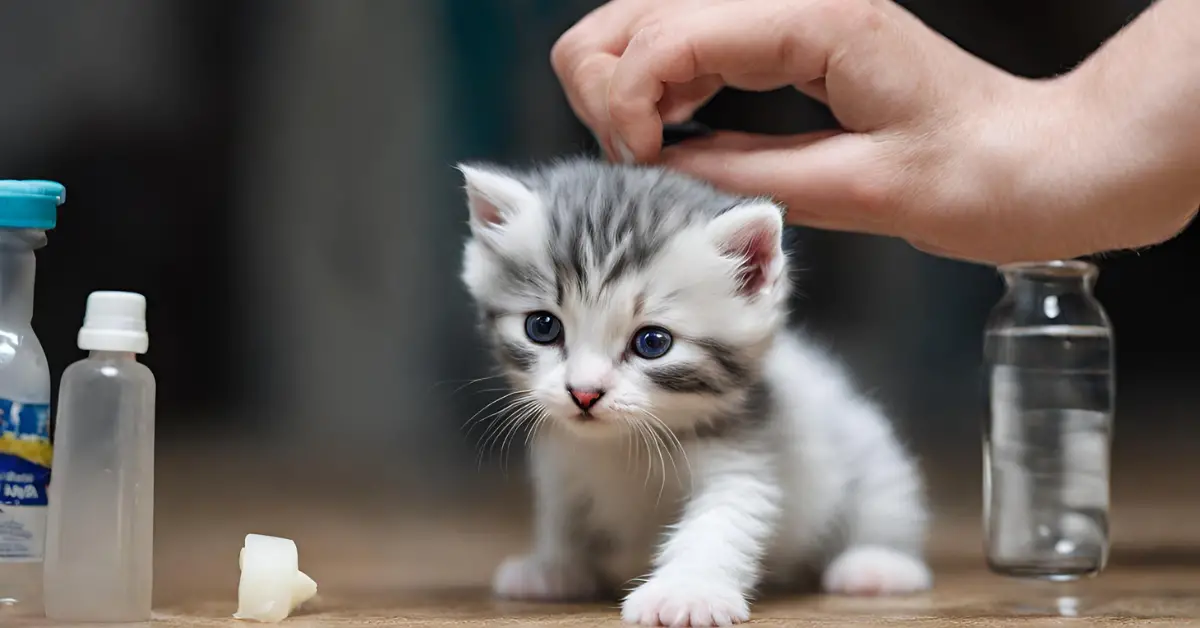Fading kitten syndrome refers to a situation where one or more kittens in a litter between birth and three months of age fall ill or die. It is not a specific disease but a term used to describe the rapid deterioration of newborn kittens for various possible reasons. Prompt veterinary treatment is necessary to save affected kittens.
Confirming the Diagnosis
Veterinarians can run various medical tests to confirm fading kitten syndrome and identify underlying causes, including:
- Bloodwork to assess organ function, electrolyte levels, blood sugar, etc.
- Urinalysis to check for kidney issues or infections
- Fecal exams to test for parasites
- Necropsy (animal autopsy) to pinpoint failures in vital systems
Specific infections, congenital disabilities, low blood sugar, dehydration, and other issues can lead to fading kitten syndrome. Determining the root cause guides targeted treatment.
Fluid Therapy and Nutrition Support
Fluids and nutritional support are vital for restoring fading kittens’ health. Subcutaneous fluid therapy involves injecting hydrating fluids under the skin using tiny needles. Intravenous fluid therapy provides fluids directly into the bloodstream through veins using catheters. Both help resolve dangerous dehydration and stabilise blood sugar levels.

Additionally, speciality nutritional supplements or tube/bottle feeding provide essential calories and nutrients if a kitten is too weak to nurse effectively. These supports are critical while kittens regain strength.
Treating Infections
Various infections can trigger fading kitten syndrome, including:
- Viral infections like feline herpesvirus
- Bacterial infections like kitten fading syndrome
- Parasitic infections like toxoplasmosis
Vets prescribe medications tailored to the type of infection, such as antibiotics (amoxicillin, etc.), antivirals (acyclovir, etc.), dewormers (fenbendazole, etc.), and others. These help clear infections so kittens can recover. Rapid treatment is vital.
Other Supportive Medications
Steroids like prednisone treat inflammation related to infection. Injectable or oral vitamin supplements support nutritional health. Antacids (omeprazole, etc.) and gastroprotectants (sucralfate) help kittens struggling with gastrointestinal issues. Other medications may be prescribed as needed.
At-Home Care and Monitoring
While medical treatment occurs, meticulous at-home care helps fading kittens recover:
- Isolate and keep kittens warm using blankets, bedding, or heating pads
- Track nursing and weight gain patterns. Bottle/tube feed if the kitten seems unable to nurse.
- Gently clean soiled bedding to prevent chilling
- Carefully administer all prescribed medications per schedule
- Take kittens to all follow up veterinary exams for continued monitoring
| Aspect | Details |
|---|---|
| Definition | Rapid deterioration and failure to thrive in kittens < 3 months old; not one specific disease |
| Peak Incidence | First week of life; over 90% of kitten mortality |
| Causes | Infections (viral, bacterial, parasitic), low blood sugar, inadequate nursing, birth defects, etc. |
| Signs | Lethargy, weakness, weight loss, hypothermia, dehydration, death |
| Diagnostic Testing | Bloodwork, urinalysis, fecal analysis, necropsy to ID underlying issues |
| Treatment Overview |
|
| Specific Treatment |
|
| Nursing Care |
|
| Outlook with Treatment | Hopeful; most fading kittens recover with aggressive Rx and nursing |
Fading kitten syndrome progresses rapidly, but the condition is treatable if addressed promptly and aggressively. Under veterinary guidance, most affected kittens can be nursed back to health through supportive medical care and at-home monitoring. Stay alert to signs of illness, and never hesitate to begin treatment. There is hope!
Source
- Fading Kitten Syndrome: Causes, Symptoms, & Treatment – Cats.com
- Fading Kitten Syndrome | PetMD
- The Truth About Fading Kitten Syndrome — Causes, Cures, Treatment and Prevention – PetMag

